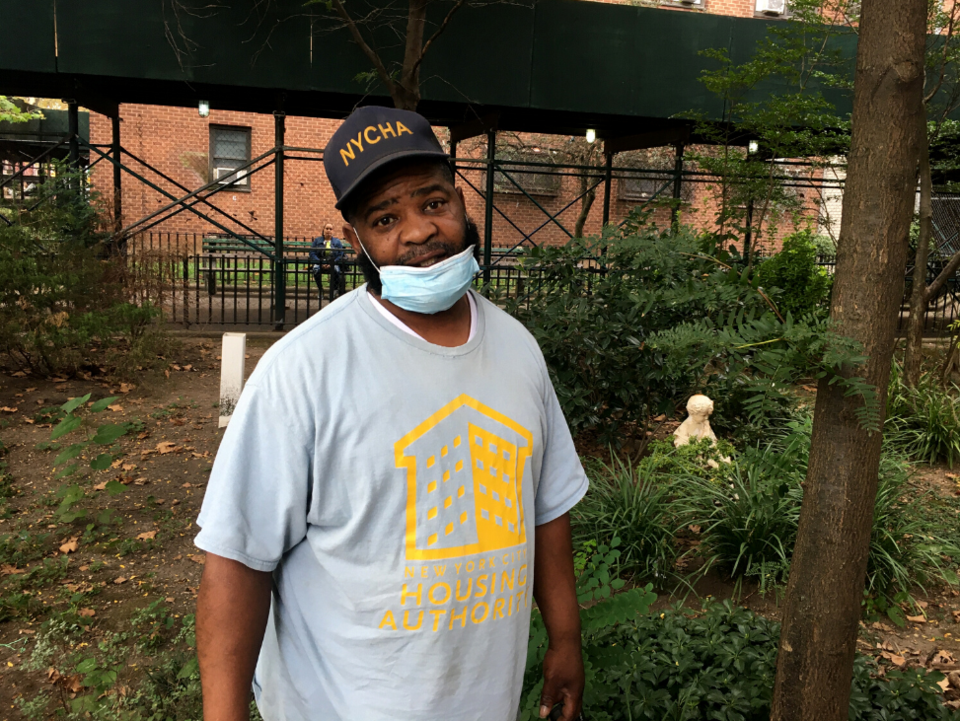"Don't get me started, I get emotional," John Cook says, as he embarks on a tour of the Clinton Hill NYCHA complex Lafayette Gardens this Friday.
Cook does the rounds of the nine gardens he's spent about 14 years building and tending with his own money, in his own time, with a NYCHA cap perched on his head, a walkie-talkie slung at his hip and a hello for anyone he sees.
Inside the gardens there's hydrangeas, azaleas, roses, cherry blossoms, weeping willows, statuettes of angels, and now, signs advertising a "Free Garden Giveaway."
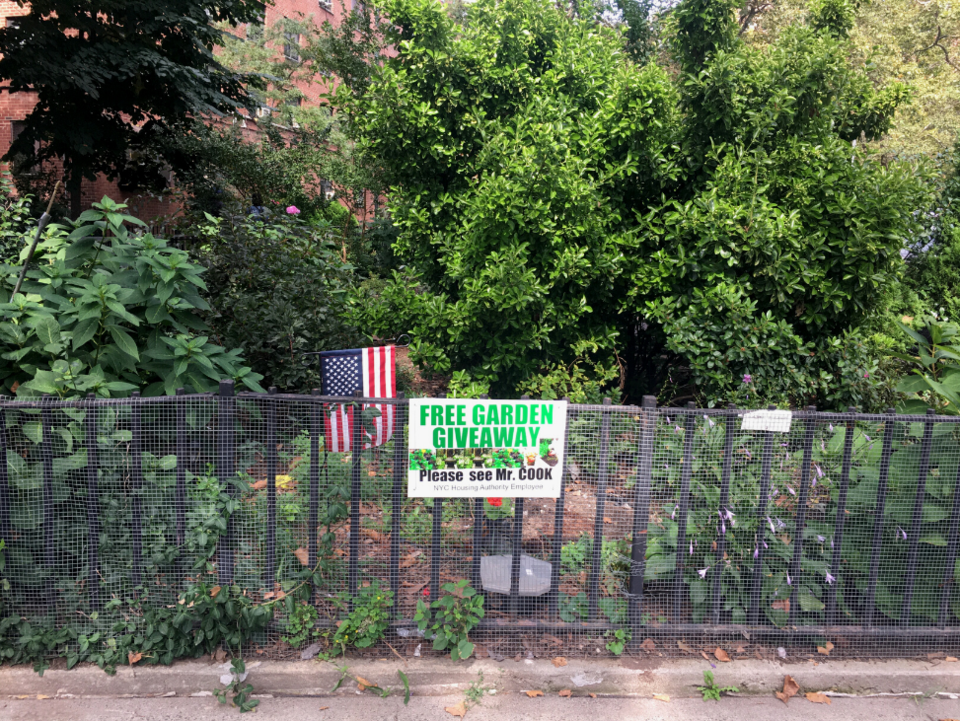
Recently, Cook was told by NYCHA's pest control team that the gardens must be cut back and cut down due to a mounting rat problem. After trying to negotiate with the City, he said there's nothing more he can do. The garden has to go.
"They want it gone. Everything cut. The flowers cut out, taken out," he said.
As a result, Cook is currently advertising for schools and community gardens to come and take the plants and flowers to re-home them.
"I have no other avenue, I have to give it away. If not, they just gonna butcher it, cut it all to pieces."
All-consuming
Cook first started working for NYCHA at Lafayette Gardens about 16 years ago.
Prior to that, he'd spent years working as an assistant gardener for the NYC Parks Department, after learning about gardens from his mom and working with a farmer on Long Island.
However, after the passing of a dear friend, Cook left the NYC Parks Department for a leave of absence, worked a bunch of "weird" jobs before landing at NYCHA and being placed at Lafayette Gardens. At first he tried to avoid redoing the gardens.
"I tried to resist getting back into it because it hurt so bad losing the person who was so close to me, who had hands on that with me," he said.
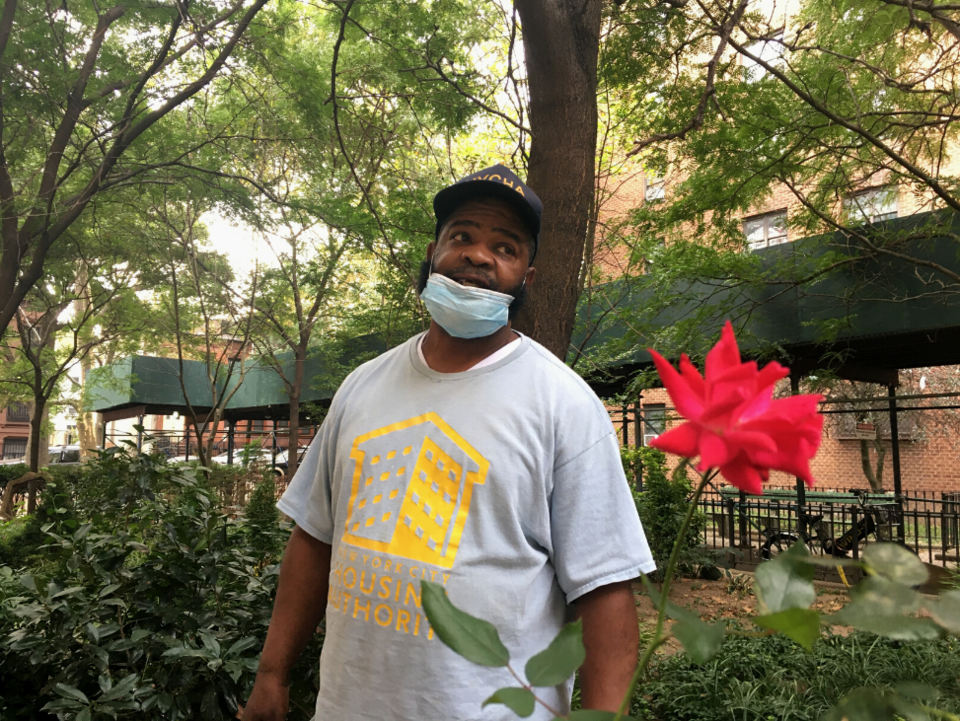
But the stories of gardens previous residents had, and Cook's general curiosity for the people who lived in the complex started to draw him in again. Soon, he was finding himself working eight hours a day for NYCHA, and then spending another four to five hours after work building gardens and meeting residents.
"It became consuming, all the stories," he said. "You know when an old person sits down to give you that time for that story, it's such a jewel."
"Like her," he said, pointing to a woman on a walker gliding by. "Sheâs a dancer. They give me their time, they give me their stories, they give me their jewels. And I give them these gardens."
The kid in the window
Cook remembers digging in one of those first gardens, about 14 years ago. It was summer holidays at the time and one of the single mothers at the complex had her 12-year-old son "locked inside" due to a spate of violence outside.
Cook said the boy would study, but his desk faced outside, and he could see them constructing the garden. After he went back to school, the teachers asked him to write about what he did that summer. That's when he wrote an essay about a man who built a garden behind a building.
"The mother came down and she gave the essay to me, and I couldn't stop laughing. I was like, 'I inspired you, man.' I inspired him, so it became addictive."
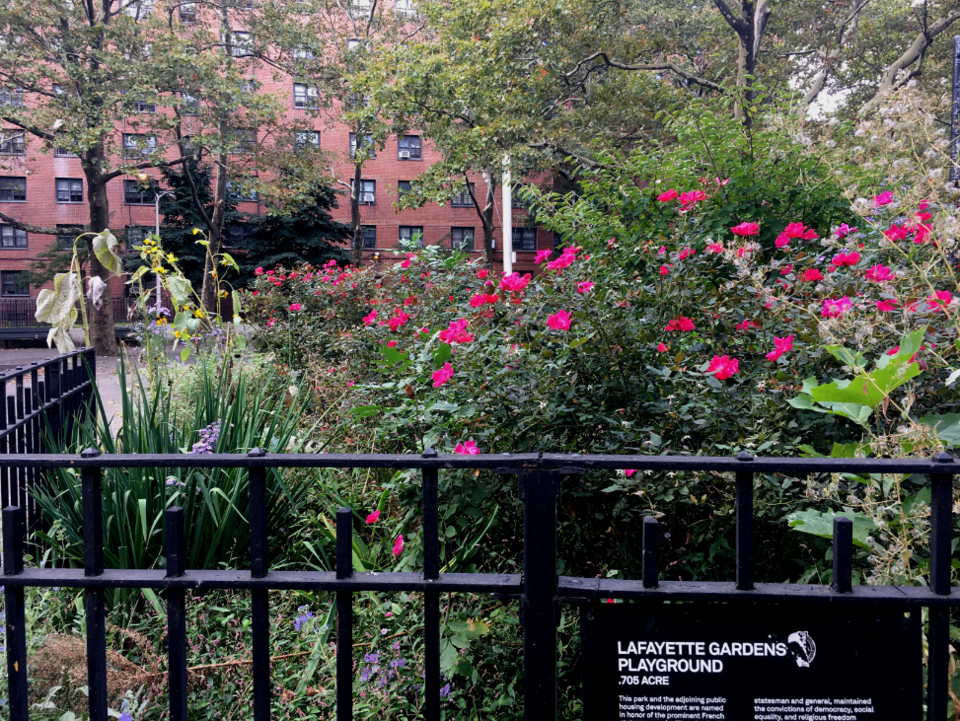
Soon after, Cook bought daffodil bulbs which "came up astounding." "The neighborhood hadn't seen anything like them in years," Cook said.
Then, he started a plant rescue â" going to homes that were doing landscaping or plant shops that had sick plants â" and picking up new flowers and trees for cheap or for free.
Over 14 years, Cook built up nine community gardens within the NYCHA complex for the residents to enjoy. He got so passionate about it, that when he sold his condo, he put the proceeds into developing the gardens.
"I took $58,000 and just put the money in LG, into all the gardens. I built it. All of them. I moved to a room. Put my stuff in storage.
"But the story is, this place is constantly rewarding, and the stories and the things it does for people are just addicting."
The stories
Cook is full of stories himself, about how he, the residents and the gardens have interacted to brighten each other's lives over the years.
There's the memory of the elderly man with dementia who liked to sit with Cook as he tended the gardens. That relationship started when the man's family asked if Cook could watch him in his wheelchair while they ran over the road to the pharmacy.
When they left, the man broke a long silence he'd been in, by pointing out an Elephant Ear plant he recognized from his youth.
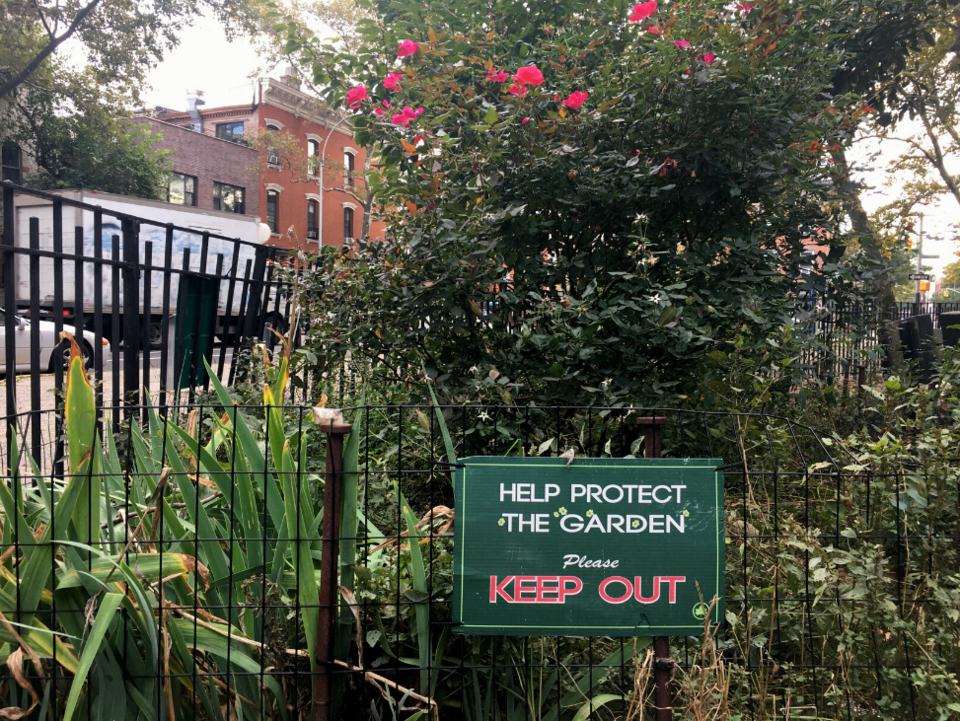
"The family said, 'What? He doesn't talk.'" After he passed away, the man left Cook a chunk of what he thought was brass. After eight months, he got curious, and took it to a jeweler. It was pure gold.
Other stories relate to the young men in the complex the gardens have inspired.
Cook once encouraged a contractor to approach the young unemployed men in the complex to help with construction, and now many of them are in the trade for life. A youth group has been fundamental in helping to maintain the gardens for so long.
And Cook is proud to say there haven't been any robberies, attacks, assaults "anywhere near my garden" for a very long time.
"I was trying to figure out the logic, how is it that tough men feel some sort of way being around a garden? Like it makes them less than a thug by standing by a flower," Cook mused.
The gardens are also special because they contain the memories of loved ones who have died. During the pandemic, the complex lost a number of residents, who weren't able to be buried due the pressures of the time.
"The families came with the ashes to sprinkle them here. We have peopleâs mothers in there. I have about 13 rabbits. Two gerbils. A bird."
The rats
Rats have been an issue around the complex for a while, but the issue worsened during the pandemic, Cook said.
"Rats came in during the pandemic and they burrowed in and the pest control organization is trying to stop it. They keep saying the gardens are overgrown and eyesores and obstructing the view."
Cook said he's tried to do what the City asks, but he hasn't had time and he's often exhausted after work.
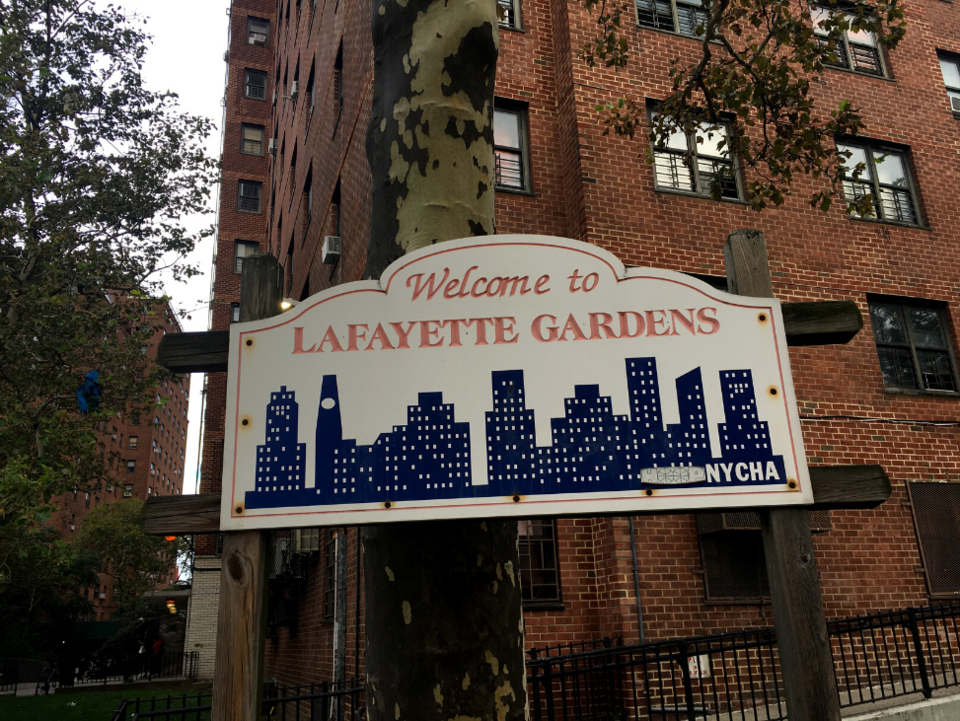
He didn't have volunteers to help him cut things back, and wasn't able to do all the work himself. He employed someone for a time, but said he wasn't really able to pay him. "That keeps me in poverty."
About three months ago, he said the City started sending pest control in the night who would cut down any plant in their way. As a result, he's decided to cooperate and try to give away the plants before they are hacked out. Right now, he's asking for schools and community gardens to come and re-home the plants.
On Thursday, they started digging up plants to donate to the school across the road to build new gardens.
"I want to be able to visit them," Cook said of the plants.
NYCHA responded to BK Reader's request for comment Friday.
âNYCHA pest control staff requested that the garden, which is overgrown, be better maintained in order to be able to locate and address rat burrows," a spokesperson said.
"We ask that all residents continue to use the MyNychaApp or call the Customer Contact Center at 718-707-7771 to create a work order ticket for any maintenance needs.â

